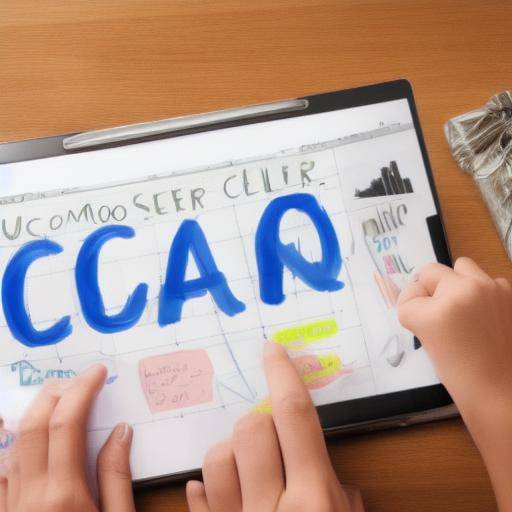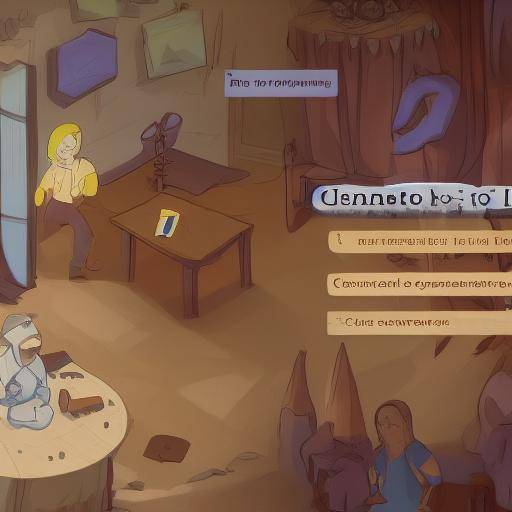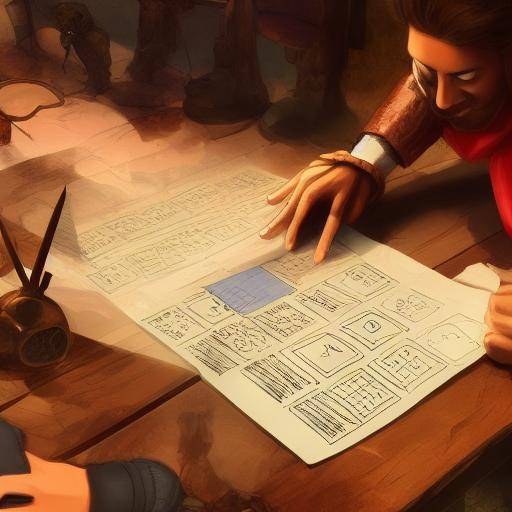
Introduction
In today's society, fear of failure is an emotion that affects many people in different spheres of life. Whether in the working environment, studies or personal relationships, fear of failure can limit personal and professional development. Fortunately, there are effective tools and techniques to combat this fear, and one of them is the role-playing. In this article, we will explore what this technique consists of, how it can help to confront the fear of failure and foster personal development. In addition, we will provide practical advice, case studies and expert opinions to fully understand their implementation.
History and Background
The role-playing, or role play, has its roots in psychology and theatre. It is used as a personal learning and development tool that allows you to simulate real situations and practice responses or behaviors. Throughout history, role-playing has evolved from its original application in the field of theatre to becoming a technique used in psychotherapy, business training and education.
In business, role-playing has become a key tool for improving communication, leadership and problem solving skills. Organizations have adopted role-playing as an effective method of preparing their teams in challenging situations and fostering an active learning environment.
Analysis in Deep
The role-playing offers many benefits, such as the improvement of self-confidence, the ability to face difficult situations and the development of social skills. However, it also presents challenges, such as the need for an adequate guide and the initial resistance of participants. Currently, the role-playing has evolved with the advancement of technology, which has allowed its implementation in virtual environments through interactive simulations and online role games.
Comprehensive review
The successful implementation of the role-playing requires a careful and strategic approach. Some best practices include setting clear goals, providing constructive feedback and creating an environment of trust. The use of realistic scenarios and the active participation of those involved are critical to maximizing the benefits of role-playing. As organizations recognize the importance of personal development in the working environment, role-playing has become a valuable tool for professional growth and the management of fear of failure.
Comparative analysis
The role-playing is closely associated with the concept of fear of failure and personal development. By simulating challenging situations, role-playing allows you to directly face the fear of failure and develop new strategies to deal with it. This technique fosters growth and personal learning by providing an opportunity to experience and reflect on various performance alternatives.
Practical Tips and Accessible Tips
Some practical tips for implementing role-playing include: clearly defining objectives, providing constructive feedback, fostering an environment of trust and active participation. It is important to establish relevant and realistic scenarios to maximize the effectiveness of role-playing. By internalizing the learnings derived from these simulations, it is possible to overcome the fear of failure and promote personal development significantly.
Industry Experiences and Expert Reviews
According to experts in psychology and personal development, role-playing is an effective strategy to confront the fear of failure and promote personal growth. By simulating challenging situations, people can develop new skills, increase their confidence and learn to face obstacles more effectively. The successful application of role-playing in the business and educational environment has proven to be a powerful tool for personal development and the management of fear of failure.
Case Studies and Real Life Applications
In this sense, many organizations have implemented the role-playing to improve the performance of their teams. For example, a sales company used the role-playing to train its representatives in managing objections and sales closures, resulting in a significant increase in sales after the implementation of this technique.
Future Trends and Predictions
As organizations seek to improve their employees' skills and foster a continuous learning environment, role-playing is expected to remain a relevant and valuable technique. With the advancement of technology, role-playing is likely to evolve into more immersive virtual environments, allowing even more realistic and effective simulation experiences.
Conclusion
Role-playing is presented as a powerful tool to address the fear of failure and foster personal and professional development. Through the simulation of challenging situations, this technique allows you to directly face the fear of failure and develop new skills and approaches to confront it. By strategically implementing role-playing, it is possible to overcome the limitations imposed by fear of failure and to move towards personal and professional growth.
Frequently asked questions
**1. How can the role-playing be applied in the educational field to address the fear of failure?**The role-playing in the educational field can be used to simulate challenging academic situations, such as presentations or debates. By practicing these situations in a controlled way, students can face their fear of failure and develop skills to face these challenges with greater confidence.
**2. What are the most common challenges in implementing role-playing in a business environment?**One of the most common challenges in implementing role-playing in a business environment is the initial resistance of participants. Some people may feel uncomfortable participating in role simulations, so it is important to create an environment of trust and security to foster active participation.
**3. Is there scientific evidence to support the effectiveness of role-playing to address the fear of failure?**Several studies have shown that role-playing can be an effective tool to face the fear of failure. By simulating challenging situations and practicing responses or behaviors, people can reduce anxiety associated with failure and develop effective strategies to deal with it.
**4. What is the difference between role-playing and exposure therapy to address the fear of failure?**While role-playing focuses on the simulation of challenging situations to practice responses and behaviors, exposure therapy consists of directly confronting the feared situations. Both techniques aim to reduce the fear of failure, but use different approaches to achieve it.
**5. How can organizations foster a culture that promotes the effective use of role-playing for personal development?**Organizations can promote the effective use of role-playing for personal development by providing adequate training and resources, establishing clear expectations and recognizing and rewarding improvements resulting from the implementation of this technique.
**6. What is the long-term impact of role-playing on the management of fear of failure?**The long-term impact of role-playing on the management of fear of failure can be significant. By internalizing the learnings derived from simulations, people can develop greater capacity to face challenging situations with confidence and resilience.
In conclusion, the role-playing is positioned as a valuable tool to confront the fear of failure and foster personal and professional development. Its strategic application in diverse environments, together with the expert guide and active commitment, can generate tangible results in overcoming fear of failure and personal growth.














































